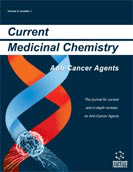Abstract
The rapid developments of high-resolution imaging techniques are offering unique possibilities for the guidance and follow up of recently developed sophisticated anticancer therapies. Advanced biodegradable drug delivery systems, e.g. based on liposomes and polymeric nanoparticles or microparticles, are very effective tools to carry these anticancer agents to their site of action. Elements from the group of lanthanides have very interesting physical characteristics for imaging applications and are the ideal candidates to be co-loaded either in their non-radioactive or radioactive form into these advanced drug delivery systems because of the following reasons: Firstly, they can be used both as magnetic resonance imaging (MRI) and computed tomography (CT) contrast agents and for single photon emission computed tomography (SPECT). Secondly, they can be used for radionuclide therapies which, importantly, can be monitored with SPECT, CT, and MRI. Thirdly, they have a relatively low toxicity, especially when they are complexed to ligands. This review gives a survey of the currently developed lanthanide-loaded microparticulate systems that are under investigation for cancer imaging and/or cancer therapy.
Keywords: molecular Imaging, lanthanides, cancer therapy, cancer diagnosis, mri, radionuclides, advanced dug, delivery systems
 1
1

















